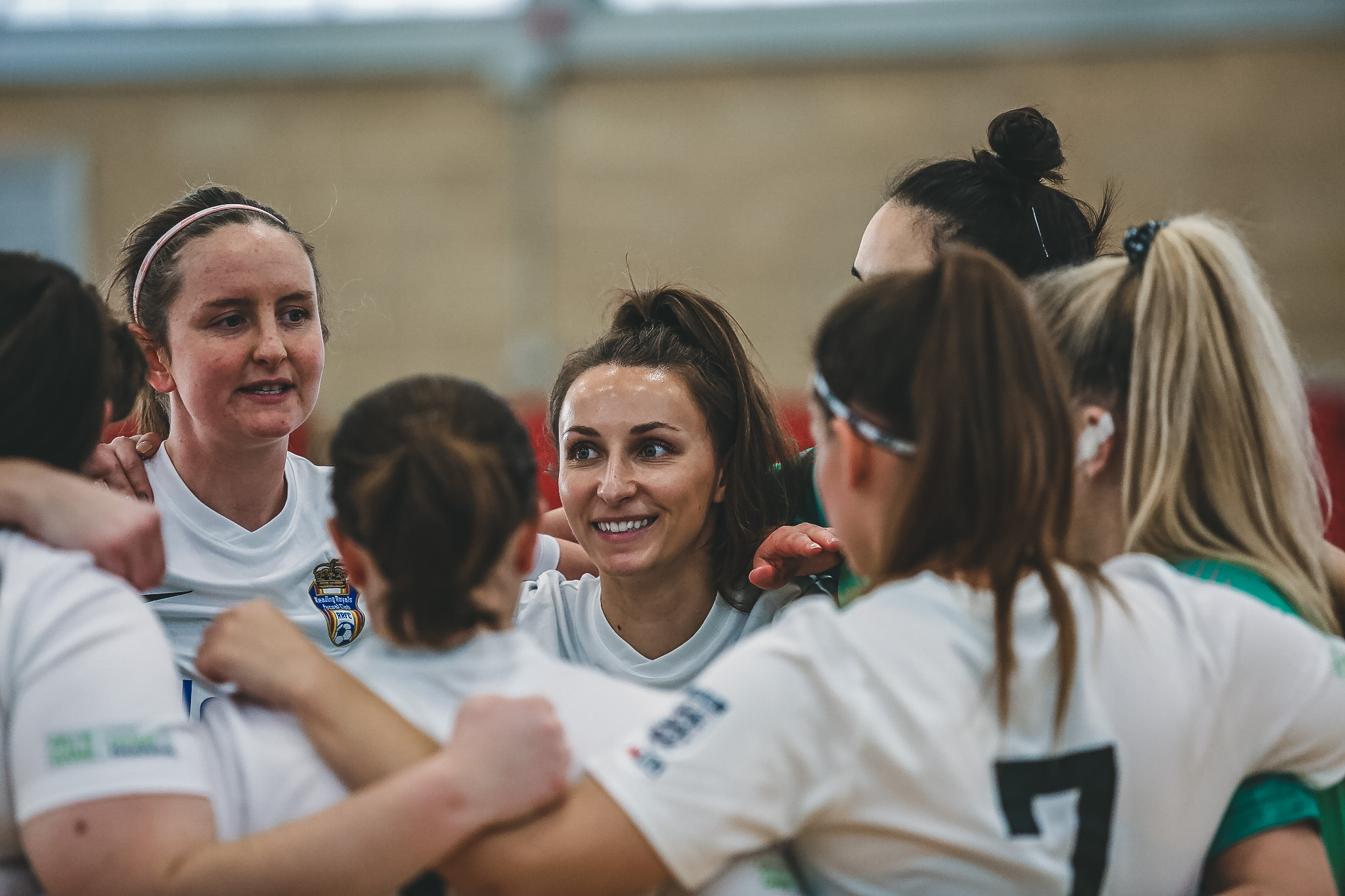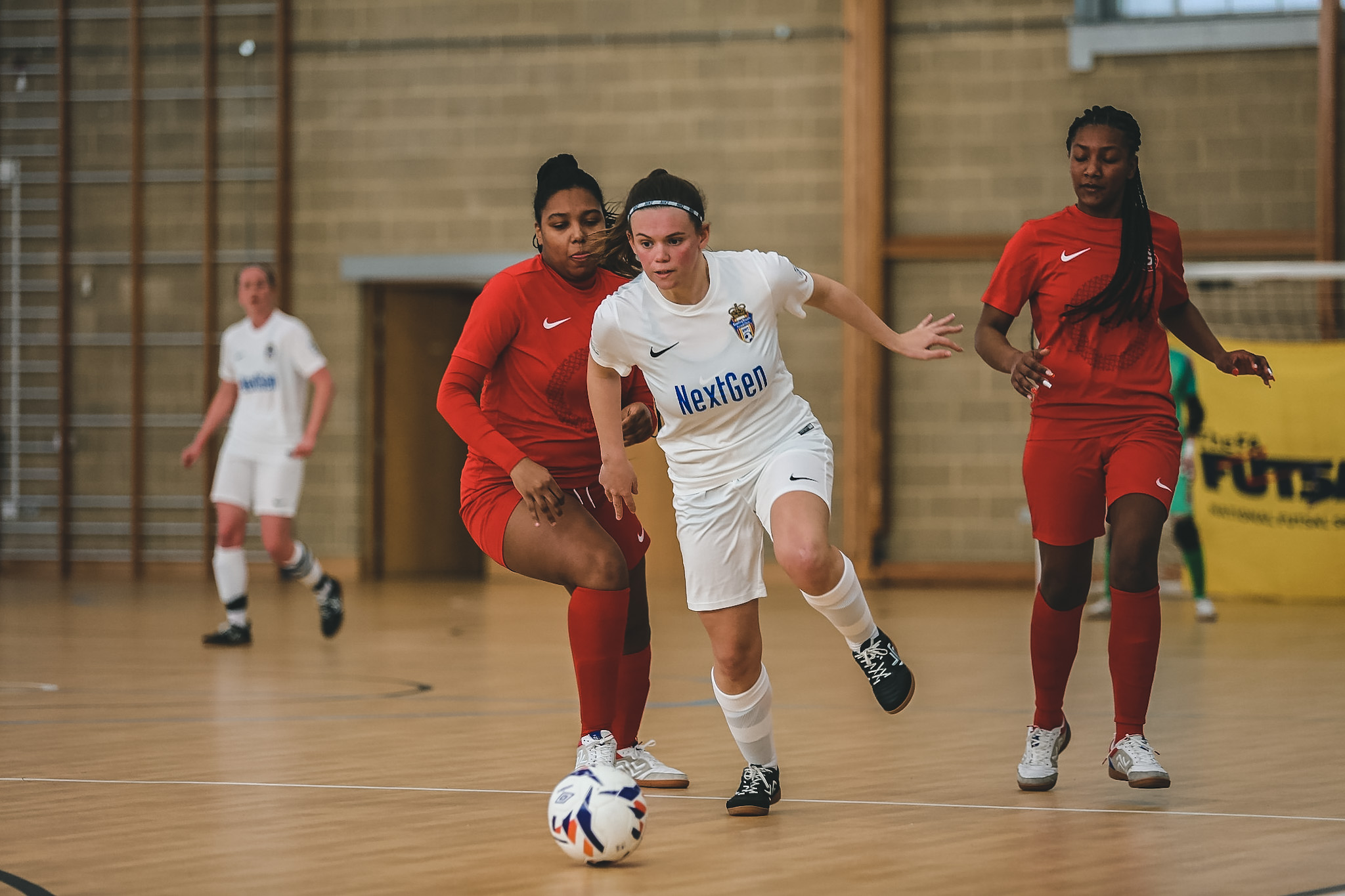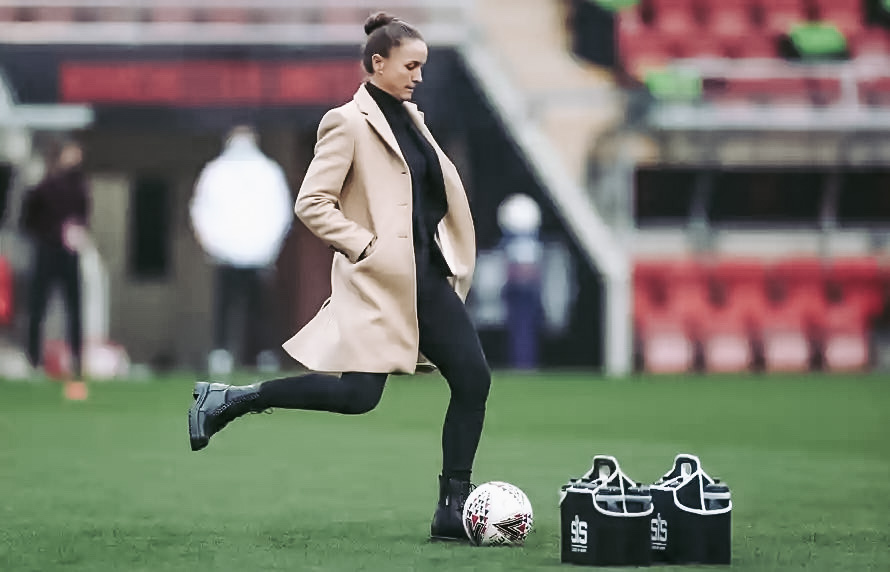Futsal is on the way up in England. A landmark BT Sport broadcast deal, an expanded National Futsal Series, and more and more talented players taking to the court. If you look at where the sport was before COVID, it’s practically unrecognisable. However, no matter how fast the popularity of futsal grows in England, it continues to face familiar barriers, over and over again.
Writing this, I’ve recently returned from a trip to Spain, one of the best countries in the world for futsal. The men’s national futsal team have won the UEFA Futsal Championship seven times, and the FIFA Futsal World Cup twice – that’s just showing off, right?
The women’s team are no less impressive, sitting second in the world rankings just behind, you guessed it, the motherland of futsal – Brazil. They won the most recent UEFA Women’s Futsal Championship and consistently placed in the top three of nearly every international tournament that they’ve contested.
Training Space
Starting with a big one, and arguably one of the most important given the notorious British weather; Finding spaces to train in England is a headache to say the least.
Competitive futsal is almost always played indoors, which means leisure centres, school sports halls and university sports facilities are the only way to go. Therein lies the problem – those facilities are limited and serve a wide range of sports groups, with futsal often coming bottom of the pile.
Even if you manage to find a free slot in one of the oversubscribed sports halls in the area, there’s a high likelihood that there will be a distinct lack of the correct court markings nor futsal goals, or both. It makes it quite hard to teach younger players about the game without the right markings or goals to practice with, and it often leaves clubs with the decision on whether to purchase goals themselves or to try to use what’s available to them.

Then, let’s say you manage to find a suitable sports hall with a free slot and with the correct markings and goals… Another issue rears its head: the price.
The cost of hiring sports halls in England is eye-watering. My previous club paid £45 for an hour and a half session in a relatively modest school sports hall that’d be on the small side for competitive futsal. If they wanted a venue to play a competitive match against another team with spectators, there was an alternative venue that the club would use, coming in at a painful £127.50 for an hour and a half session.
Realistically, with a sport that’s new on the scene, clubs will want to get players in to try out and encourage them to come back, but with the prices of sports halls so high, clubs more often than not have to ask their players to pay to play. Unfortunately, having to pay for sports clubs is a sticking point for plenty of families and young people, especially given the current economic climate; We’re pricing people out of the sport.

Development Leagues
For aspiring futsal coaches and players, another big stumbling point in England is the lack of developmental leagues. Looking solely at the women’s side of things for a second – think about football; There are seven tiers of competition from professional to grassroots, with plenty of opportunities for female players to find the right level and move up or down depending on their ability, development, time they can commit and if they fit into a team…
Now, look at women’s futsal. If you’re looking to play at a competitive level, in most county FAs you have the option of the National Futsal Series (which is a national, ‘elite’ level league) and not much else. The NFS is fantastic, but if you’re a new team to futsal and hoping to develop while playing competitively, it might not quite be the right move. You wouldn’t want a new team to go out and get comprehensively beaten week-in week-out – it’d be soul-destroying.
Futsal can’t grow without that intermediate step from recreational futsal to the NFS. There’ll always be young girls or boys looking to step up to senior futsal who might be put off by the pressure of playing top flight, and we’re letting those players down by not providing a more comprehensive pathway for them to find their feet and simply enjoy their sport.

Lack Of Coaching Courses/Knowledge
A personal peeve for me as an aspiring coach, the severe lack of coaching courses available for futsal in England is laughable, and it is something that holds the game back no end.
Coaching plays a massive part in not only the development of individual players, but also the development of the sport itself. Without high-class coaching, young players won’t learn to play futsal to their fullest potential or will learn to play ‘footballised’ futsal. In turn, that prevents English teams competing on the wider international stage. When Champions League futsal comes around, without high-quality coaching, we’ll always fall short.
The new FA Introduction to Futsal is a step in the right direction, but I’ve personally been waiting nearly four years for my county FA to put on the next level futsal course which would allow me to properly build on that knowledge and actually qualify to coach. When football coaching courses are widely available month-by-month and provided by nearly every County FA, comparatively it feels like a nightmare treasure hunt to find an available futsal course.
Threatened Coaches
On a related note, the lack of education on the sport has led to a raft of misconceptions about futsal and where it fits into the greater scheme of things. There are a lot of football coaches around England and beyond who don’t understand that the two sports can be played in parallel and be mutually beneficial for their players.
There exists a group of football coaches who dissuade their players from trying futsal. Whether that be because they are threatened by the idea that their player might like futsal better, that they’d choose the sport over their own, that they risk injury playing more or just because they like a bit of control over their players.
Unfortunately, in England, the misconceptions about the ability to juggle football and futsal and the lack of supportive coaches hinders a lot of players. In reality, football and futsal are easily balanced, and actually help each other in a number of respects. As a coach, why would you want to hold back the development of your players? Surely, you’re all about getting the most out of your players and guiding them to be the best they can be should always be the main aim of any coach. Futsal provides a great alternative and allows players to better themselves technically and physically. Sadly, with coaches not understanding that, futsal will continue to be deprived of a number of talented players, in turn holding back the growth of the sport.

The solution(s)?
Solve the above. Seems simple enough…
Sadly, the truth is that these barriers will not be that easy to break down. The future growth of futsal relies on better funding, better education and more companies buying into the sport.
With the complete lack of FA funding, local authorities need to step up in order to make facilities affordable and accessible for newly emerging clubs. Grants and public funding would also be a lifeline. For example, Sport England are currently offering financial help to grassroots football clubs to improve pitch facilities for clubs – that sort of funding would go a long way towards making indoor facilities more affordable and allowing futsal teams to grow the sport without having to charge young players.
The next couple of solutions are down to the County FAs and FA more generally; put some time into futsal! Provide development leagues, make sure coaches can access the courses they need to complete in order to inspire their players, just don’t continue to sleep on this incredible sport.
There are plenty of people in the futsal community who would happily help make this happen alongside the FA and local authorities. All it takes is for someone at the top to accept what needs to change and be brave enough to start making it happen.
Futsal could be stratospheric, it just needs a little bit of support to lean on. I’m not saying we’ll be Spain in the next five years, but why not set our sights high?









